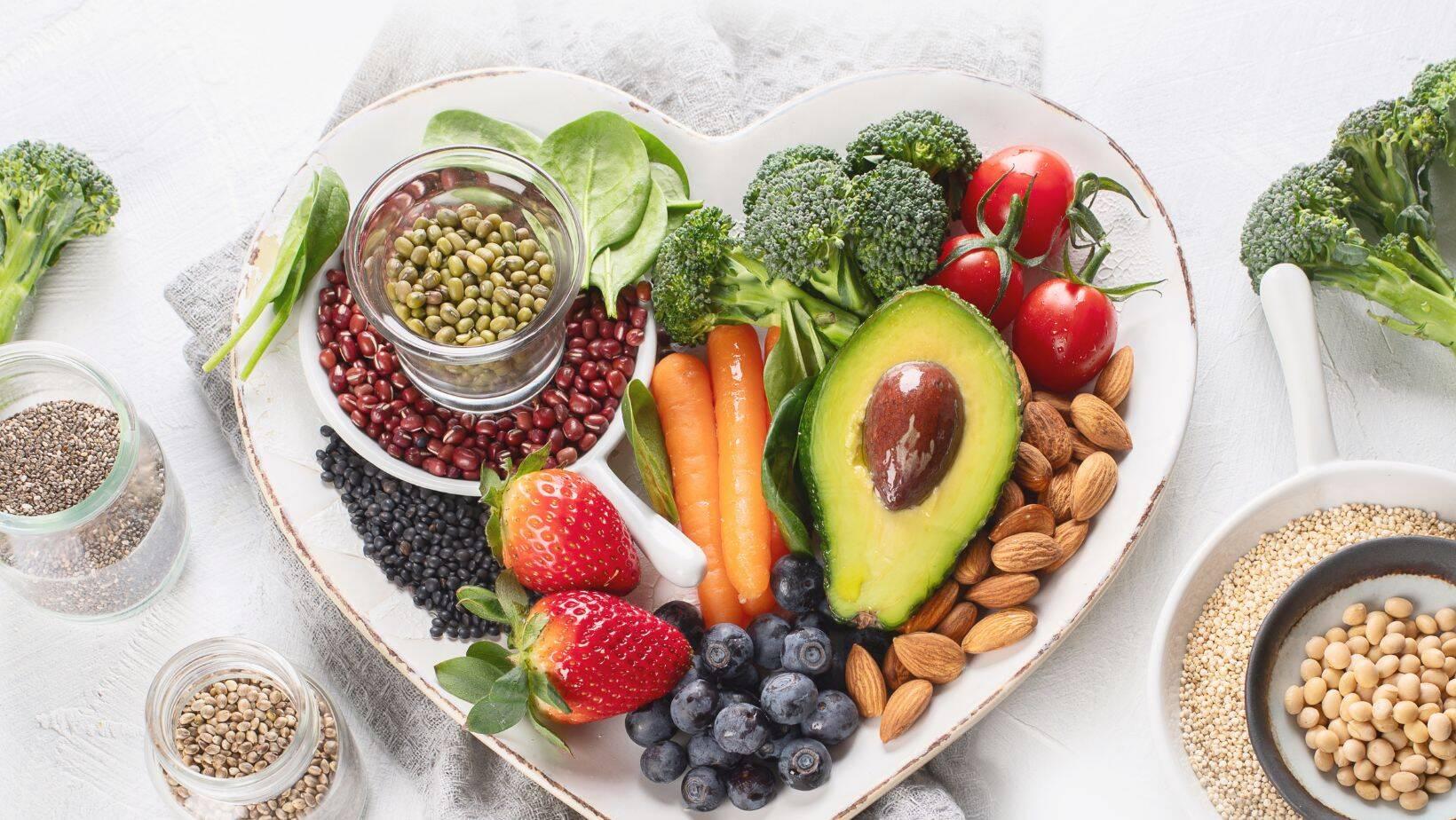How to Go Vegan at University
01 November 2021 • 8 min read
Thinking about venturing into the vegan diet?
November 1st is National Vegan Day, so there’s never been a better time to ditch the meat and dairy and opt for the plant-powered lifestyle. At present, an estimated 12% of the entire UK population have abandoned meat in favour of the vegan diet. While that may not seem like a lot, it equates to nearly 7.8m people across the country!
This year, we led a study that revealed how students are leading the meat-free revolution. While 86% of UK adults still eat meat, our research found that just 64% of students share the same diet. Why? According to our findings, health benefits as well as environmental impact and moral beliefs are the leading reasons inspiring students to take a different path.
Clearly, a cultural shift is slowly taking place in the food we eat, with the younger generations acting as the pioneers of the plant-based diet. Of course, it’s no secret that the costs associated with the vegan diet are higher than the average monthly outlays of other dietary lifestyles. Plus, we all know how hard it is to stick to regimes when you’re away from home for the first time.
If you’re going vegan while at uni, read up on our top tips and useful advice 👇
1. Do your homework
Going vegan is a significant step you can take to reduce your impact on the planet. But if you’re new to this diet, you’ll likely have a lot of questions.
Can I go vegan on a budget?
Do I need to take supplements, and which ones should I take?
What snacks are vegan?
Which sources of essential nutrients are vegan?
Fail to research and you’ll find yourself spending your student loan on that same vegan restaurant time and time again. The truth is, you don’t have to spend a lot to eat sustainably, nor do you have to accept having nutrient deficiencies. You just need to set some time aside to learn the basics. For example, getting a good source of protein that you enjoy eating is vital – tofu, seitan and soya beans are all super versatile, and nutritional yeast can be used to add a salty, cheesy-twist to your dishes. This vegan favourite is also a great source of Vitamin B.
2. Go veggie first
If meat and dairy make up a big chunk of your diet, dropping them both overnight isn’t going to be easy. You’ll find yourself spending hours in supermarkets, reading labels and leaving overwhelmed at the prospect of sticking to a strictly vegan diet for the foreseeable future. Like any considerable life-change, a slow transition is the best way to approach going vegan.
By going vegetarian first, you get a chance to fall in love with meat-free meals and discover new dishes at a pace that suits you. Next, try to eat one vegan meal a week. After a month, bump it up to two, then three. Before you know it, you’ll be a proud plant-powered student with a growing recipe book of simple meals that don’t hurt the planet.
3. Make a list of foods you love that are already vegan
If the thought of going vegan is daunting, flip the whole thing on its head by making a list of your favourite foods that are vegan. Smoothies, salads, curries, stir fries, tacos, quesadillas, burritos – they can all be made without a trace of meat or dairy. Plus, you might be surprised to find a lot of these are simple to make and affordable on a student budget.
Most people eat vegan more than they realise, and some meals only require a couple of ingredients to be switched. For example, a pasta Bolognese only needs Quorn mince to become a vegan classic, and most rice dishes that you would pair with meat just require something like butternut squash to feel substantial.
4. Keep your cupboard stocked with vegan essentials
Just because you’re going vegan, it doesn't mean have to blow your entire food budget on fresh veggies every day. When you do your food shop, pick up some long-lasting vegan pantry essentials like canned chickpeas, butter beans, red kidney beans, black beans, lentils, quinoa and sweetcorn. That way, when it comes to cooking dinner, you’ll always have a few ingredients to use as a base for a delicious meat-free meal.
You’ll also want to keep your spice rack stocked to make sure every meal you make packs a flavoursome punch, whether that’s hot n’ spicy, bitter and sweet or aromatic as you like it.
5. Learn 5 simple vegan recipes
No one’s expecting you to be a Michelin-star vegan chef overnight. It takes time to get a knack for cooking, especially when you’re sharing a kitchen. To keep things simple, we recommend finding five vegan meals that are easy (and affordable) to keep in your rotation. Over time, you can venture out and try new recipes to expand your repertoire.
But this isn’t Come Dine With Me, and nobody's judging if you eat the same things all the time. Plus, once you know these five meals have a great balance of the nutrients you need, you can feel confident leaving meat and dairy behind in favour of a diet that doesn’t cost the earth.
Top tip! Having a tough week? Most Pot Noodles are vegan friendly already, since the ‘meat’ pieces are actually soya beans.
6. Plan your meals (and your snacks)
When it comes to commitment to your new dietary lifestyle, forward planning is your best friend. It’s also a great way to save money, which is a huge added bonus. At the start of the week, jot down a rough idea of what you’re going to eat. It might be a seitan scramble for your breakfasts, some carrots and hummus for snacks, nuts and vegan-friendly pretzels for binge-watching sessions and a selection of simple meals for dinner.
We’re talking buddha bowls, chickpea curry, vegan burritos with black beans as a base… there are plenty of options to explore. By planning your meals in advance, you can buy everything you need on Sunday and even batch-cook some of your dinners ahead of the week.
7. Find your people
They say there’s strength in numbers, and when it comes to going vegan, it’s much easier to stick to a diet when you surround yourself with others who do the same. The good news is that university is the best place to meet new people who share your interests, morals and preferences. If you haven’t already, head to your student union and find out whether there’s a vegan society at your uni.
Joining a vegan soc can be a great way to share recipes and exchange tips on the best vegan restaurants. You might even find a group who organise a fortnightly vegan feast! No vegan society at your uni? Start one of your own! We guarantee there will be likeminded students who will be grateful to find their people through your club.
8. Research your restaurants
It’s okay to slip up from time to time, and you shouldn’t feel guilty when something non-vegan finds its way into your meals by accident or through lack of options. However, avoiding these situations is the best way to prevent yourself from giving up entirely.
Get to know the restaurants, takeaways and cafes in your local area and read up on their vegan options: some pubs may only have a veggie burger as their vegan offering, but it’s better to know in advance if their menu doesn’t suit your diet so you don’t get stuck sneak-eating a bag of nuts in the corner.
9. Get insider tips
Speaking of restaurants, if you ever stumble upon something absolutely delicious while dining out, don’t hesitate to ask the staff the secret to the scrumptious meal. Nine times out of ten you’ll find that restaurants are using shop-bought vegan products – so, instead of spending your entire student loan on eating out, you can simply buy the ingredients yourself and make it at home. You might even find your flatmates eyeing up your yummy vegan recipes and asking for a bite!
10. Get the scoop on social media
Instagram is a great place to find out about new vegan products soon to hit shelves near you. Although branded products can be pricey, most supermarkets have their own plant-based ranges that cost exactly the same as their non-vegan alternatives. Stay up to date with the latest product announcements and reviews via channels like @accidentallyveganuk and @nowyouknowitsvegan!




